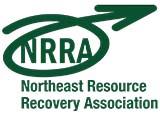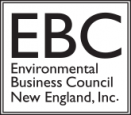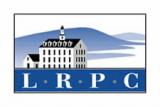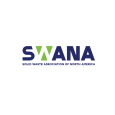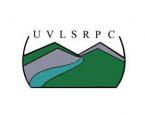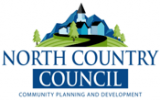Solid Waste Facility Operator Training and Certification
State law requires operators of solid waste facilities in New Hampshire to be certified through NHDES.
All operators who work at permitted solid waste facilities in New Hampshire must be certified by NHDES through the Solid Waste Facility Operator Training and Certification Program. Solid Waste Operator Training (SWOT) increases awareness of and compliance with RSA 149-M and the New Hampshire Solid Waste Rules through education and training. Operators that understand the requirements are in a better position to properly maintain their facility, control operating costs, and protect public health and the environment.
There are approximately 1,400 certified solid waste operators in New Hampshire.
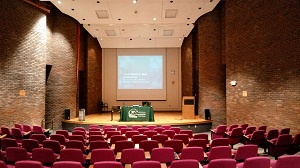 Obtaining Initial Solid Waste Operator Certification
Obtaining Initial Solid Waste Operator Certification
Within 30 days of hire, all operators employed at a solid waste facility must submit a complete application with a $50 fee to NHDES. This entitles them to work at solid waste facilities in New Hampshire until they attend basic training and take the examination. NHDES notifies processed applicants of the next opportunity to train and test; that status is withdrawn if the operator does not attend. To apply, submit the most up-to-date initial application or contact the SWOT Program for a copy.
After submitting an initial application, all operators will receive a Processed Applicant letter. The letter includes the assigned in-person Basic Training class date. If the applicant cannot attend their assigned class, there are alternatives including online training. The applicant is to contact the SWOT Coordinator for information on the online options or for a one-time extension to their Processed Applicant status.
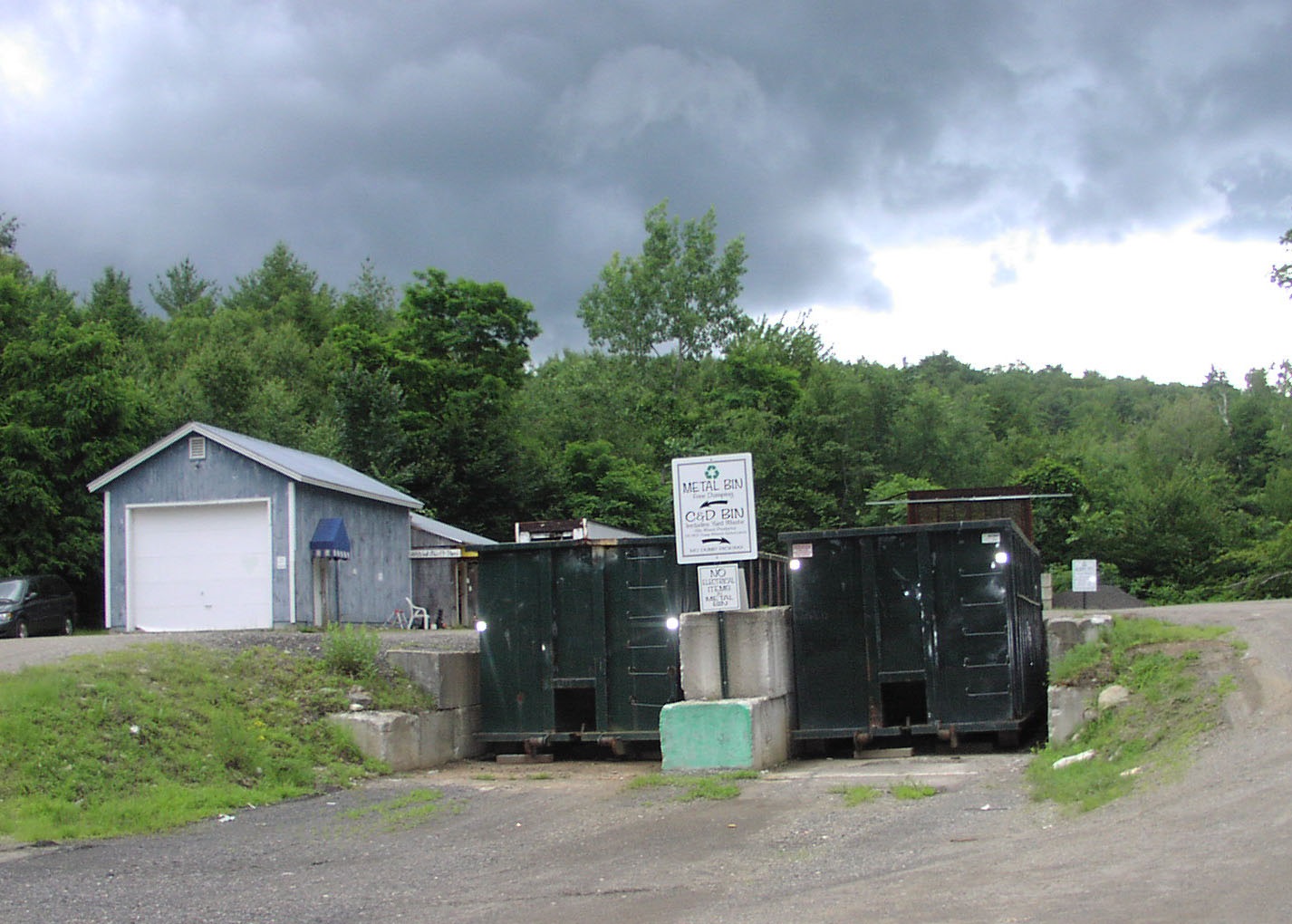
Maintaining Your Solid Waste Operator Certification
Operators must renew their certification every year no more than 90 days prior to the certification expiration date. The operator shall submit to NHDES the following to renew:
- A completed and signed renewal application.
- Adequate verification of at least 2.5 hours of continuing professional development within the previous 12 months.
- $50 annual fee.
If NHDES receives the application after the expiration date, but within 90 days following the expiration date, operators must pay an additional $25. If a renewal application is received more than 90 days after the expiration date, the application will be denied and the operator must reapply for initial certification.
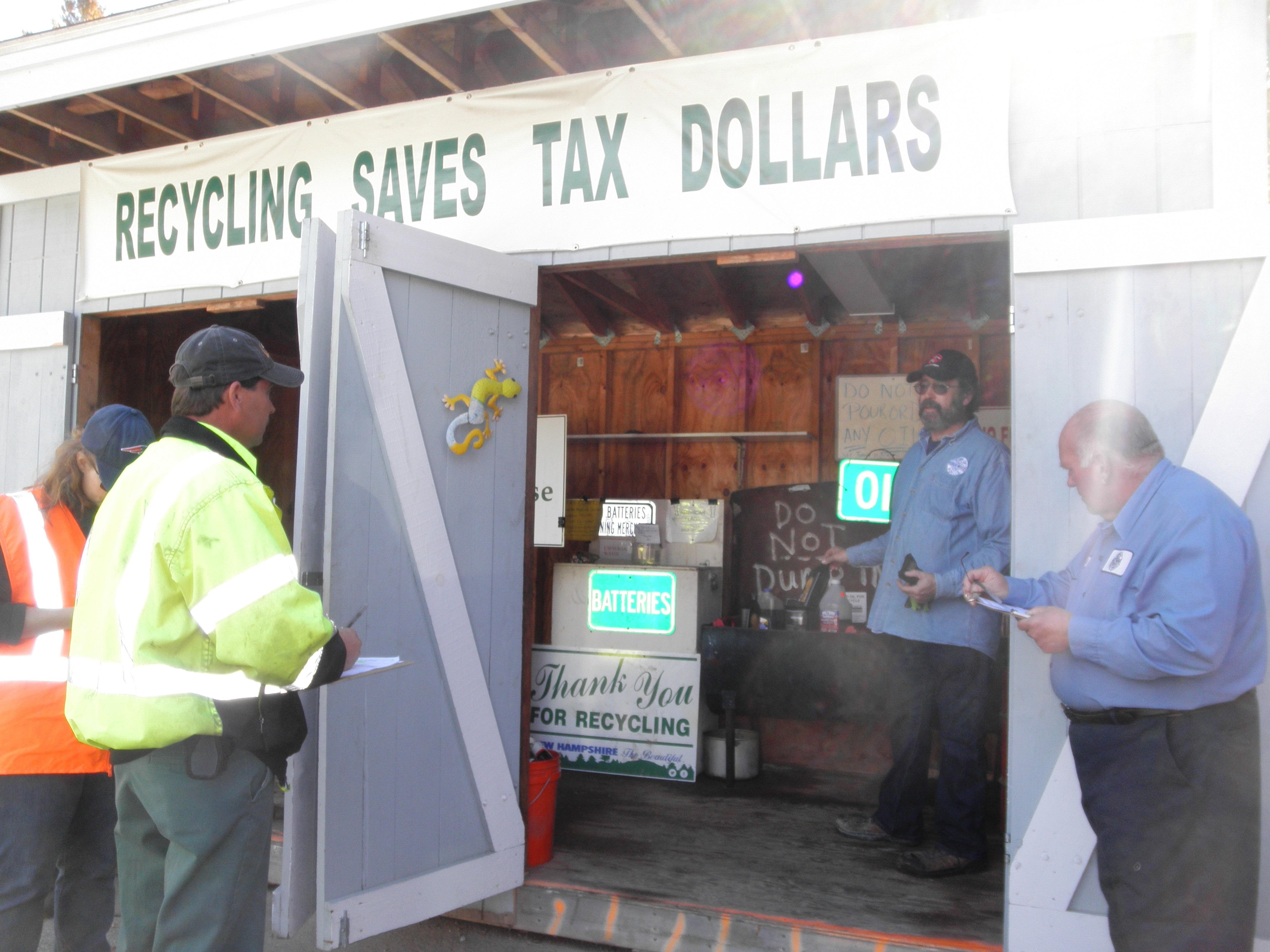
Continuing Professional Development Workshops
After a Solid Waste Operator has been certified, they must take at least 2.5 hours of continuing professional development within the 12 months prior to their expiration date. Adequate CPD consists of professional or technical instruction that imparts information and instruction relevant to waste management and solid waste facility operations. The SWOT Program hosts CPD for operators throughout the year.
Operators may choose to take training from a third-party vendor. That is up to each individual operator to find, schedule and verify qualification and attendance to those classes.
NHDES-Hosted Continuing Professional Development
NHDES has developed a curriculum for solid waste operators that meets the definition of Continuing Professional Development (CPD) (Env-Sw 1603.03). The trainings are designed to instruct solid waste operators on how to best manage wastes that come into their facilities in order to promote environmental protection, public health and safety. A description of the classes and resources are listed in a two-column table below. The courses are provided either online or in-person. All online classes are recorded so that they may be viewed at a later date. To see all of the pre-recorded webinars, you may either view the table below or go to the NHDES SWOT Channel.
While NHDES has developed this curriculum for operators, there are many other options for certified solid waste operators to obtain their CPD credit hours. This includes, but is not limited to:
- In-house safety meetings and/or trainings;
- Discussion, Design, and Implementation of operating changes in regards to safety issues;
- Developing and Posting outreach to customers of changes due to safety issues; and
- Retraining staff on PPE.
In order for any of these events to qualify for credit, verification of events must be submitted. This can include any or all of the following:
- Attendance certificates;
- Signatures on complete sign-in sheets for live classes;
- OR
- Attachments to renewal form with the following information:
- Printed name of applicant;
- Title of class or event;
- Date(s) participated in training;
- Time-in and time-out;
- Brief description of events and include how it pertains to the applicant's job at the solid waste facility; AND
- Statement signed by the applicant verifying this to be true.
DISCLAIMER: Below is a list of NHDES workshops developed for CPD hours for certified solid waste operators and the corresponding presentations or webinar links, as available. If you have problems accessing any of these files, please contact the SWOT Program at SWOT@des.nh.gov and we will provide accommodation. Operators should place any materials obtained or notes taken during these workshops in their Basic Training Manual in order to build and update their library of information.
Latest News
Related Content
Annual Facility Report (AFR) & Post-Closure Report (PCR) Mini Sessions
The Solid Waste Management Bureau (SWMB) Staff will be available to answer questions from solid waste facility representatives regarding completing that year's AFR for active solid waste facilities. Staff will also be available to field questions regarding PCRs for inactive solid waste landfills - these questions may be relayed to other NHDES staff members if necessary. Attendees should bring their records, questions, concerns and anything else they might need so that the SWMB Staff can fully answer their questions. Instructors will not be completing the AFR or PCR forms for the solid waste facility representatives.
Asbestos, Part I
This workshop is designed for renewing Solid Waste Operators. The attendee will learn what asbestos is, the history of asbestos waste in New Hampshire, its potential health risks, typical asbestos-containing products and Best Management Practices (BMPs) for the management, transportation and disposal of asbestos waste that may be brought to their Solid Waste Transfer Station. Instructors are from the NHDES Air Resources and Waste Management Divisions.
- Webinar: Asbestos
- Supplemental Video 1: Asbestos-Related Diseases
- Supplemental Video 2: J-M Manufacturing
- Supplemental Video 3: Reuters Investigates - Mesothelioma
- Supplemental Video 4: Asbestos in the Waste Stream
- Asbestos
Asbestos, Part II
This workshop is designed as a follow-up to the Asbestos workshop. Instructors will discuss how asbestos is regulated and what operators need to know at their facilities, including identifying asbestos and what should be included in operating plans. Attendees should be able to determine how to manage an "unexpected" load of asbestos and whether a shipping facility is authorized to accept asbestos. Sample education and outreach materials for customers and residents will be provided.
Basic Training Refresher
This workshop is designed for renewing Solid Waste Operators that became certified prior to 2011. The full-day class is condensed to a half-day to give the attendees an up-to-date review of the role their facilities play in the management of solid waste in New Hampshire.
- BT Refresher
- Pre-Recorded Basic Training (9 Modules)
Batteries and HHW
This workshop is designed for solid waste operators who handle batteries of any kind or who may come into contact with household hazardous waste. Instructors will focus on the different types of batteries that solid waste operators may encounter, the hazards that occur with each type and the disposal options for batteries. Discussion will also include managing fires that occur from batteries. Attendees will also learn about household hazardous waste basics.
For online sessions, attendees are encouraged to send the SWOT Coordinator (SWOT@des.nh.gov) photos of odd batteries received at the facility. For in-person sessions, attendees are encouraged to bring odd batteries received at the facility with them to training. They must be stored properly and taped.
- Webinar: Batt. & HHW
- Batteries and HHW
- Video: Fire Safety & Batteries (Kids & Character)
Best Management Practices for Transfer Stations
This workshop is designed for renewing Solid Waste Operators. The attendee will learn what a Best Management Practice (BMP) is as it relates to a Solid Waste Transfer Station, how to use them and why they are important. Instructors will cover a variety of specific BMPs, such as Universal Wastes, Used Oil and Filters, Household Sharps, Composting, Brush Piles, Glass, and Scrap Tires.
BMPs for Negotiating Municipal Contracts for Waste, Recycling and Composting (Hosted by NRRA)
NHDES partnered with NRRA to deliver a two-part webinar series on negotiating municipal contracts for solid waste. Instructors Regan Bissonnette and Bonnie Bethune provide information on: Tips for managing a Request for Proposal process; Common provisions in contracts for trash, recycling, and composting (including distinctions for single, dual, and source separated recycling); Advice for negotiating fiscally responsible and sustainable contracts that will stand the test of time and inevitable market changes; and Lessons from sample contracts from New Hampshire municipalities.
Each of these webinars qualifies for 1.25 hours of SWOT credit.
- Part 1: Resources and Recording
- Part 2: Resources and Recording
Bulky Waste Management: Promoting Reuse and Recycling
This workshop will cover the potential for reuse and recycling of carpet, mattresses, large rigid plastic items and furniture. Included for each waste are collection and transport options and financial considerations. Instructors are from the Northeast Waste Management Officials' Association.
Compliance Avengers in the SolidWaste-Verse
Inspectors in the Solid Waste Management Bureau will discuss newly implemented inspection strategies that will hopefully lead to higher compliance at permitted solid waste facilities. This session is designed to be a Q&A style class where attendees will learn what the expectations are for the permittee as well as the operations and operators at the facility. Panelists will answer pre-determined questions as well as those from the live audience on issues revolving around compliance.
- Webinar: Compliance Avengers
Composting Basics: Don't Oversimplify It
NHDES Solid Waste Operator Training Program has partnered with Mark King from the State of Maine to offer workshops for solid waste operators as well as municipal officials, composting facilities, community gardens looking to implement composting as well as the public. The purpose of this workshop is teach attendees about the basics of composting and the importance of determining what type of composting is the right fit for their facility, community or backyard.
Construction & Demolition Debris Management
Instructors will discuss all aspects of C&D Management from identifying, sorting, storing and shipping it off-site. Additionally, attendees will learn of the options for processing C&D including recycling, restoring, treating and finally landfilling if there is no other alternative.
- Webinar: C&D
- Resource Quicklist
- Managing C&D
Electronic Waste Management
This workshop will provide attendees with up-to-date information on electronics waste recycling in New Hampshire as well as the Northeast. Instructors will familiarize operators with how the electronics recycling industry works; identify who the recyclers are; understand the role of certification in the recycling industry and answer questions regarding the e-waste recycling markets. Instructors are from the Northeast Recycling Council (NERC).
Electronics Waste BMPs
This workshop is a follow-up to the Electronic Waste Management class that provided operators with the tools to identify electronics recyclers and how to choose the proper end markets for their goods. This workshop will guide operators on how to set-up and maintain an electronics waste recycling program at their facility. Instructors are from the Northeast Recycling Council (NERC).
- Webinar: EWaste BMPs
Extreme Weather Events: How They Might Affect Your Facility & What You Can do to Prepare
Attendees at this workshop will learn what defines an extreme weather event, how they have changed over time in New Hampshire and the small changes in our behavior that can decrease the effects of these events. Instructors will discuss the terminology that has been used over the last 30 years including the misconceptions of those terms. Attendees will learn how these events can and have affected their solid waste facilities.
- Webinar: EWE
- Extreme Weather
Extreme Weather Events: The Aftermath
This workshop is a follow-up to the Extreme Weather Events workshop. Attendees will be given practical information and tasks to follow-up on after an extreme weather event happens in their community. Solid Waste operators need to be prepared for storm debris to come to their facility consisting of approved and prohibited waste. Determining the best way to manage these wastes can help prevent further damage from occurring.
Facility Managers: What You Need to Know
This workshop is designed for renewing Solid Waste Operators who are in a supervisory or management position at a solid waste facility. Instructors will discuss recordkeeping, reporting and permit requirements that solid waste managers typically handle. Attendees should bring a copy of their facility’s permit, operating plan, closure plan, most recent annual facility report, and BMP/Basic Training Manual.
- Webinar: FM, Part I
- Facility Managers, Part I
Facility Managers: What ELSE You Need to Know
This workshop is designed for renewing Solid Waste Operators who are in a supervisory or management position at a municipal solid waste facility as well as any municipal official who would like to learn more about full cost accounting (FCA). Instructors will discuss FCA methods that will enable municipalities and facility owners to make educated budgeting decisions as well as ways to manage volunteers in accordance with the rules. Prior to attending the workshop, attendees should be prepared to collect the materials needed to fill in the spreadsheets (Checklist). Attendees are encouraged to bring a laptop, calculator, scrap paper, and additional implements needed when working with data. Instructors also developed a Monthly Reporting sheet that can assist with maintaining a sustainable budget. Additional information to be covered during the session is a discussion on Cost Avoidance and Managing Volunteers.
Facility Managers: Post-Closure Landfill Monitoring and Maintenance
This workshop is designed for facility operators, municipal officials who manage the post-closure activities at municipally-owned landfills, and other interested parties. The presenters will be discussing the permittee's responsibilities for maintaining compliance with the Solid Waste Rules at closed landfills. Topics will include: A brief history of landfill closures in New Hampshire; Very basic landfill design including cap types; Inspection requirements for closed landfills; The Who? What? Where? When? & Why? of post-closure annual facility reports; and Groundwater monitoring permits (maintaining them and understanding the monitoring results).
Operators and others who attend this workshop should be familiar with their most current post-closure annual facility report, landfill closure plan, monitoring data. Attendees are invited to bring questions regarding their facility and the requirements as they pertain to the Solid Waste Rules.
- Webinar: FM, Part III
- Facility Managers, Part III
Food Waste Diversion
In 2024, NHDES partnered with NRRA and Mark King of the Maine Department of Environmental Protection to provide a 2-Day workshop broken into four modules to systematically provide information on Food Waste Diversion for a diverse audience. The majority of presentations were recorded and are presented in the SWOT Channel as Food Waste Diversion (Module # out of 4). Within each of the recordings, there are resource materials including the presentations for each.
Module 1: "What's the Big Deal About Food Waste?" is designed for solid waste operators who work at permitted solid waste facilities (transfer stations, landfills, scrap metal, compost, other process or treatment facilities); community members looking to learn about waste diversion; and municipal officials wishing to understand how their waste can affect the bottom line in the town. Attendees will leave with a better understanding of the Waste Management Hierarchy and how food waste diversion can be a better option for their community.
Module 2: "Composting Basics: Don't Oversimplify It" is designed for solid waste operators who work at permitted solid waste facilities in NH. Attending operators may or may not be interested in introducing compost at their facilities but want to know the basics. Attendees will leave with the knowledge that while composting is completely doable, it does come with some skill, finesse, and understanding of your feedstocks.
Module 3: "Implementing Food Waste Diversion Activities at Your Facility" is designed for those interested in implementing food waste diversion activities at their respective facility. Instructors will: discuss the rules regarding food waste diversion, cover education & grant opportunities, and instruct on how to determine the best method to creating a compost recipe.
Module 4: "Education, Outreach, and Grabbing the Public's Attention" is for solid waste facility operators, owners, and managers who work at permitted solid waste facilities in NH AND their community partners, leaders, and decision-makers are interested in introducing a composting program to their community. Attendees will leave with the knowledge of how to set up an effective outreach program promoting food waste diversion.
In 2017, NHDES partnered with the Northeast Recycling Council to provide a workshop on Food Scrap Management. Topics included understanding the requirements for development of an infrastructure for organics management; public education strategies to promote food reduction and composting; and a description of Best Management Practices for planning, implementing, and promoting the Food Recovery Hierarchy.
Fostering Greener Yards: A Look at the NHDES Motor Vehicle Salvage Yard Program
This workshop is designed for municipal officials, motor vehicle recycling facilities and other interested parties. Since 1965, all municipalities in New Hampshire have had the responsibility to license automotive recycling facilities, also known as junkyards, at the local level. This responsibility is contained in RSA Chapter 236 sections 111 through 129. It applies to all municipalities, whether or not there is a local zoning ordinance. NHDES has developed BMPs for the compliance requirements of motor vehicle salvage yards. They are designed to protect public health and the environment. Our experts will also outline each party's responsibility for operating, licensing and certifying compliance at the local level.
This webinar qualifies for 1 hour of SWOT credit.
- Webinar: Green Yards
Get the 411 on Used Oil and Universal Waste
This workshop is designed for solid waste operators who manage used oil for recycle (UO) and universal wastes (UW) at their solid waste facility. Instructors will identify what UO and UW are; how they need to be collected and stored; and how to stay in compliance with the regulations. Attendees will also learn some tips and tricks for accepting these items at their facility including applying for Used Oil Grants.
- Webinar: UO & UW
Get the Dirt on Biosolids & Yellow Grease
This workshop is designed to identify how residuals from wastewater treatment plants, septic activities and even cooking can relate to operations at solid waste facilities. Instructors will give a brief history on septage, discuss biosolids and how they are used at solid waste facilities, and instruct operators how to determine what is flushable or not. The class will round out with a discussion on yellow grease and how to implement a collection program at their solid waste facility.
Groundwater Basics, Landfill Monitoring & Case Histories
The attendee will learn about the early history of solid waste landfills in New Hampshire, how they have been closed and how they are monitored for the protection of human health and the environment. Attendees will learn how groundwater moves and how it can be affected by man-made contaminants.
Guardians of the Garbage: A 20+ Year Legacy
A panel of SW operators with 20 years or more of continued service have agreed to participate. Included in the panel are operators from all three types of solid waste facilities; previous NHDES employees; and all have worked to enhance the management of SW in one way or another. They will provide some insight on how the world of solid waste has changed in New Hampshire; where they see it going; and how this next generation can make the best decisions in moving forward. Those in attendance will hear stories, learn a lot about the way things were and hopefully pick up some tips to build the state of solid waste management in New Hampshire.
- Webinar: Guardians of the Garbage
HHW & Batteries
Attendees will learn: how to determine if a solid waste is a hazardous waste; rules and regulations for household hazardous waste (HHW); how to sponsor a HHW Collection Day; and about various types of batteries and how to manage/recycle them.
- HHW & Batteries
- Video: Fire Safety & Batteries (Kids & Character)
Identifying Strategies for Waste Reduction and Diversion
Since 2018, New Hampshire has reported approximately 2 million tons of solid waste disposed of annually in landfills or incinerated. Instructors in this class will identify strategies to both reduce the amount of waste generated and divert the waste that is generated from reaching landfills or being incinerated. SW Operators who attend this class should be able to identify which strategies will work for their facility and in some cases, implement them. Further workshops will be developed for each of the identified strategies that will delve a bit deeper on education, outreach and implementation plans that can be adapted to individual facilities.
- Webinar: Reduction and Diversion
- Strategies
- Resources
Implementing a Pay as You Throw Program
This workshop is designed for municipalities that are looking to either implement or change their existing Pay As You Throw Programs. Attendees will have some one-on-one time with instructors to design a program that will be effective for their town and also develop education & outreach for the town. Attendees should be prepared to do homework prior to attending the training in order to build a program that will meet their needs.
Implementing Compost Activities at Your SW Facility
NHDES Solid Waste Operator Training Program has partnered with Mark King from the State of Maine, DEP, to offer workshops for solid waste operators as well as municipal officials, composting facilities, community gardens looking to implement composting as well as the public. The purpose of this workshop is to provide practical information to attendees on how to implement composting at their permitted solid waste facility. Seats in this workshop will be held for SW Operators and town officials in charge of implementing composting at a permitted solid waste facility.
Increasing Waste Diversion - Beyond Recycling
Join Reagan Bissonnette and Bonnie Bethune of the Northeast Resource Recovery Association, a recycling nonprofit, for a workshop on decreasing the amount of solid waste being sent to landfills and incinerators. The workshop will cover waste diversion and why it is important, how communities can calculate their waste diversion rates, and specific strategies and examples of how New Hampshire municipalities can reduce their waste. Strategies will include compacting construction and demolition debris, composting, pay as you throw programs, resident education, swap shops, and textile bins. The workshop will also include small group discussion sessions where attendees will have an opportunity to share information with one another.
Invasive Upland Plant Management at SW Facilities
The primary instructor for this workshop is Janine Marr, a PhD researcher from Antioch University New England. Instructors will provide a broad overview of invasive plant species identification and management specific to solid waste operators. Attendees will understand why some plants are considered invasive under New Hampshire law and be able to describe how their presence may impact native plant communities; be able to identify at least five of the most common invasive species likely to be disposed of at a transfer station or landfill OR become established on a landfill; and describe methods for managing these invasive species. Instructors will identify management methods that adhere to the SW Rules. Attendees will receive 2.5 hours of CPD toward SW Operator Certification.
- Webinar: Invasive Plants @ SWF
Landfill Post-Closure Care for Consultants
There are over 250 inactive (closed) landfills in New Hampshire that require post-closure care, including inspection, monitoring and maintenance. In recent years, NHDES has noted that post-closure reports have either not been filed or have been missing important information required by Env-Sw 800 of the Solid Waste Rules.
Staff in the Solid Waste Management Bureau provide consultants who manage inspections, monitoring, and/or reporting for closed landfills information on post-closure inspection, monitoring, maintenance, and reporting requirements to enable them to better serve clients by helping them maintain compliance with the Solid Waste Rules. Topics will include: landfill inspection requirements; landfill gas migration monitoring; groundwater management permits; and action item follow through.
This webinar qualifies for 1 hour of SWOT credit.
- Webinar: LF P-C Care for Consultants
Landfills: What You Never Knew You Needed to Know
Attendees will learn about the early history of solid waste landfills in New Hampshire, how they have been closed and how they are monitored for the protection of human health and the environment. Attendees will learn how groundwater moves and how it can be affected by man-made contaminants.
Landfills in the Hierarchy
This course is designed for landfill operators and permittees to learn how landfills fit into New Hampshire’s Waste Management Hierarchy statutorily. The difference between statutory bans and prohibited and authorized wastes is discussed. Attendees walk through an exercise that will help them make decisions on wastes brought to their facilities that may or may not be authorized for acceptance. Attendees will also learn how all of these discussions fit into the development of adequate Operating & Closure Plans.
Let's Talk Trash - Solid Waste Challenges Facing Municipalities
On January 15, 2020, members of the New Hampshire Legislature met with solid waste industry subject matter experts to discuss the challenges that the state, especially municipalities, is facing in regard to solid waste. Some of the topics covered were: management methods of solid waste; solid waste facilities in New Hampshire; rules regarding solid waste and solid waste facilities; and the cost of solid waste in New Hampshire. The speakers were Mike Nork, NHDES; Reagan Bissonnette, NRRA; and Marc Morgan, Lebanon Regional Solid Waste District.
- Webinar: Let's Talk Trash
Mock Inspection of a NH Transfer Station
Attendees will meet at a New Hampshire transfer station where they will partner with NHDES Solid Waste Inspectors to conduct a BMP Inspection using the Self-Inspection Checklists created specifically for transfer station operators. The checklists were created to help operators determine if their waste collection methods comply with applicable rules. This workshop is also an opportunity for certified operators to discuss waste management methods with their peers that may enhance activities at their own facility.
Navigating State Contracts and Grants
The purpose of this class is to demystify New Hamsphire State Contracts and Grant Programs. The majority of SW facilities in New Hampshire are publicly owned and have no idea how many contracts and grant options and opportunities they have available to them for reuse, recycling and waste options. Amy Farnum of the Department of Administrative Services and staff from the Purchasing and Contracts team will be walking attendees through those options including their reuse facility White Farm; Contract pricing for items such as electronics as well as navigating the information available on their statewide contracts website. They also will delve into some strategies for reaching out to your community on reducing the load from waste generated.
- Webinar: State Contracts
- Presentation with links to Contracts & Grants: State Contracts
Operating Plans
This workshop is designed to assist SW Facility Managers, Owners and permittees develop operating plans that meet the requirements of the rules, conditions of their solid waste permit and any other regulations that the facility may be subject to. The instructors have developed a practical method for clarifying the parts of the operating plan and what facility activities should and can be covered in the plan. Attendees are to bring a copy of their permit and most current operating plan in order to complete the classroom activities.
The materials provided will assist facility representatives in updating the operating and closure plans specific to the solid waste facility in which they represent. Viewing the webinar recording counts toward 30 minutes of continuing professional development hours. Operators may earn additional CPD credit by submitting verification of time spent developing, reviewing and updating operating and closure plans. Use the provided checklist to ensure all of the required information is included and updated in both the operating plan and closure plan.
Organics
Attendees will see first-hand how a composting facility works and will gather hands on knowledge as to why permitting facilities for food waste composting is so important. The instructors will be from the Northeast Recycling Council and NHDES.
Pay As You Throw, Recycling Strategies and Toxics in Packaging
NHDES partnered with Northeast Recycling Council to hold a workshop to assist solid waste operators, municipal officials and interested parties on pertinent solid waste issues in the Northeast. When attendees leave the workshop, they should have information, knowledge and/or the beginnings of a plan of action on the following. 1) Knowing whether "Pay As You Throw" is a viable option for your facility and/or municipality. Also, steps to implement a Pay As You Throw (PAYT) program and how PAYT can be phased-in to best fit your community, what are the different PAYT models used, how to "win over" elected officials and the public to understanding the benefits of PAYT, and what are the benefits and challenges to adopting PAYT in your community. 2) Determining what recycling strategies will work best for your community and facility. 3) What is "toxics in packaging" and why should you care? What are potential impacts resulting from toxics in packaging, why is New Hampshire committed to toxics reduction in packaging?
Pollution Prevention and Household Hazardous Waste
Attendees will be introduced to Pollution Prevention (P2) Basics; will learn the rules and regulations for household hazardous waste (HHW); and how to sponsor a HHW Collection Day.
Safety & Risk Management at Solid Waste Facilities
NHDES has partnered with Primex to discuss safety and risk management for SW Operators. Topics will focus on issues specific to collection/storage/transfer solid waste facilities. Due to the current COVID-19 pandemic, instructors will spend time discussing personal hygiene procedures, proper use of masks, social distancing and will entertain questions from the audience on their concerns. This class is a NEW workshop and has been updated from previous Safety Sessions where NHDES partnered with Primex.
This training would also be applicable to any DPW employee.
Scrap Metal & Stormwater Management
This workshop is designed for renewing Solid Waste Operators who work at a scrap metal facility or at any permitted facility that accepts scrap metal. Additionally, motor vehicle recyclers are invited to attend. Instructors will discuss management of scrap metal at solid waste facilities in accordance with the rules and cover any best management practices for managing that as a commodity in addition to federal requirements for stormwater management.
- Webinar: Scrap Metal & SW Mgmt
Textiles Recovery and Diversion
This workshop will provide participants with information on the environmental and economic benefits of recovering textiles and on what kinds of textiles are acceptable. The training will include open discussion and two industry representatives. Instructors are from the Northeast Recycling Council.
Things that Go Bang!
Solid Waste Operators and those that work in the industry of solid waste encounter many different hazardous situations including handling waste that has the potential to combust. NHDES partnered with the NH State Police Bomb Squad to provide information to solid waste operators on how to properly address such situations. Instructors will cover how to handle, manage and address the following wastes that may come into the facility: clandestine drug and explosive labs, waste ammunition, flares, fireworks and even blasting caps. Additionally, these operators at solid waste facilities encounter wastes that may be contaminated with illegal substances and attendees will learn what to do in these situations including when Narcan may be needed. Instructors will focus on health and safety at these locations and any emergency actions that must be taken.
- Webinar: Things that Go Bang!
Ticked Off & More
This workshop is a hodge-podge of a variety of topics that directly affect the personal health and safety of solid waste facility workers. Presenters include staff from NH DHHS, JSI and Primex. Attendees will be educated on the dangers of ticks and how to protect themselves from them; heat and cold stressors; and an introduction on dealing with difficult people.
To Burn, Or Not To Burn
Attendees will learn about construction and demolition (C&D) debris and asbestos, what can and cannot be burned in a burn pile, ash management, and alternatives to open burning. In 2020, additional topics of Category IV permit requirements including information pertaining to transfer stations and fire weather, recommended burn days and smoke management were included. Instructors are from the NHDES Waste Management and Air Resources Divisions and the Department of Natural and Cultural Resources.
- Webinar: To Burn
- To Burn, or Not to Burn
Understanding Recycling Markets & Practical Tips
Join Reagan Bissonnette and Bonnie Bethune of the Northeast Resource Recovery Association, a recycling nonprofit, for a workshop on understanding recycling markets and practical tips for municipalities. The first part of the workshop will cover why recycling matters, material specifications and markets for recyclables, and common end markets for recyclables. The second part of the workshop will cover practical recycling tips, such as creative storage options for recyclables at municipal facilities, baling versus loose recyclables, and answering resident questions. Attendees will learn specific examples of how municipalities in New Hampshire implement these recycling tips. The workshop will also include small group discussion sessions where attendees will have an opportunity to share information with one another.
Universal Waste, Part I
This workshop is designed for renewing Solid Waste Operators to learn more about the proper management of universal wastes collected at transfer stations.
Universal Waste, Part II
This workshop is designed for renewing Solid Waste Operators to learn more than "just the basics" about Universal Wastes. The training will give the operators some real-life experience on managing and handling universal wastes. Operators will also practice using the Self-Inspection Checklists and BMP Guide Sheets for Universal Wastes.
Used Oil, Part I
Attendees will learn Best Management Practices and compliance issues with used oil. Attendees will also learn about the management, transportation and recycling of used oil that may be brought to their Solid Waste Transfer Station. Instructors are from the NHDES Waste Management Division.
Used Oil, Part II
Attendees will learn more about the hazards of Used Oil. NHDES Staff will cover why used oil is regulated as a HW in New Hampshire; who brings used oil to your facility, used oil grants and all about marketing used oil.
Used Oil, Part III
Attendees will learn how to handle a used oil spill at their facility and how to manage used oil that has been brought to their facility that is contaminated. NHDES Staff will also quiz attendees on their knowledge of the used oil and fluids management BMPs.
Weird Things You Find at Your Facility and How to Manage Them
NHDES staff members will identify "hard to get rid of" wastes that can show up at your solid waste facility and discuss different ways to get rid of them. Instructors will identify why these wastes are difficult to dispose or divert from disposal through recycling as well. This class will just cover the basics on each of these items and attendees will be able to ask questions during the session. Registrants are encouraged to supply instructors with a list of wastes that they have struggled to dispose of. Some examples of wastes that are already on the list are radioactive waste, railroad ties, sharps and asbestos.
Solid Waste Operators will receive 3 hours of Continuing Professional Development for participating in the entire class.
- Webinar: Weird Things
- Topics & Timing
- Weird Things
- Helpful Link "Managing My Waste"
Why Does "My" Transfer Station Manage Waste the Way it Does? Part I & II
This workshop covers the reasons why municipalities in NH choose solid waste management methods. The reasons are broken down and explained; how decisions are made; and discussions will be had on how the lack of understanding can lead to a lack of good decision-making. Instructors will examine the importance of the different roles held as well as the responsibilities of all parties. Attendees will also hear from NH Operators on decisions that have been made (large and small) at their local municipal facility and the outcomes of those decisions.
Part II of this series covers public perceptions and implementing effective education & outreach as well as how users react and respond to the way solid waste is managed. Attendees should leave with ideas for educating facility users on proper waste management at the facility as well as why it is necessary to manage the waste in that manner. Operators will also be given some tools when getting stuck between the public and decision makers.
SW Operators will receive 2.5 hours of Continuing Professional Development for Part I and at least 2 hours for Part II.
Wonder Women of Solid Waste
A panel of women who are employed in New Hampshire's solid waste industry will discuss what it has been like for them to break into a field that in the past has been thought of as a male's profession. The panelists come from all different backgrounds and hold different positions at New Hampshire solid waste facilities. They will discuss their own work experiences and how those experiences have influenced their careers. The purpose of this workshop is to encourage women to get more involved with the industry-side of solid waste; and educate attendees on what challenges may exist for women in the solid waste field and how to overcome them.
- Webinar: WW of SW
You are ready to compost, now what?
NHDES Solid Waste Operator Training Program has partnered with Mark King from the State of Maine to offer workshops for solid waste operators as well as municipal officials, composting facilities, community gardens looking to implement composting as well as the public. The purpose of this workshop to have a conversation with those who are in various stages of composting. Discuss the issues for New Hampshire facilities including site location, transportation, logistics and regulations.





